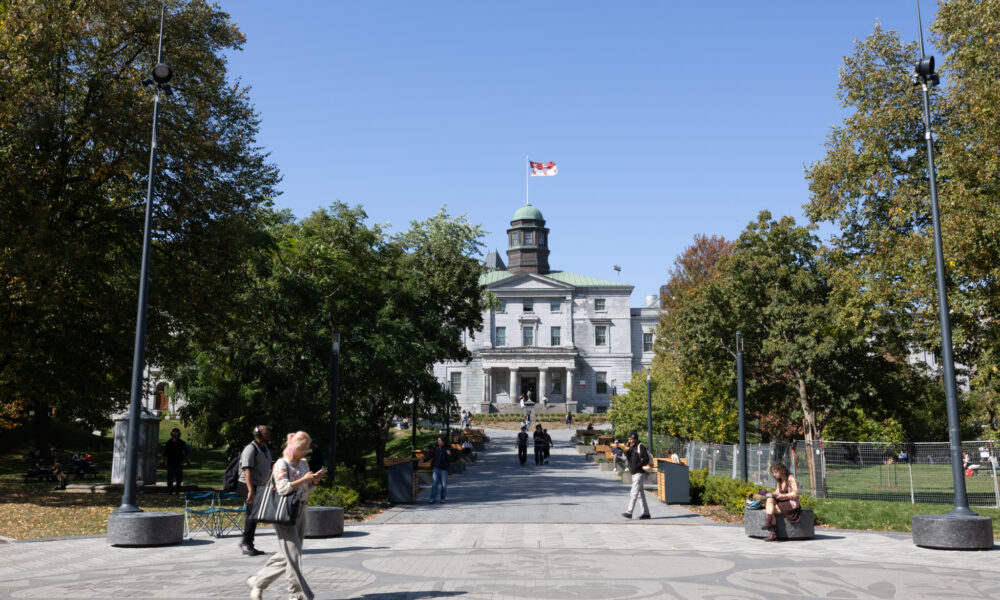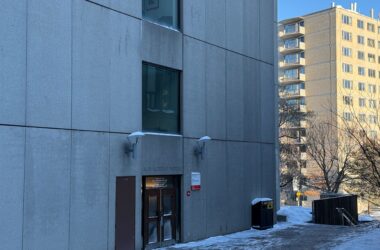On Aug. 27, the McGill Senate Nominating Committee issued a report calling for the immediate replacement of associate professor of McGill’s Department of Political Science William Clare Roberts in his role as member and Vice-Chair of the university’s Committee on Student Discipline (CSD).
The committee’s decision followed a post made by Roberts on X on Aug. 23, in which he called for “full economic and military support for Hamas and Hezbollah” as the only “appropriate” means through which to counter the genocide being committed by Israel. Currently, Public Safety Canada lists Hamas and Hezbollah as terrorist entities.
In their report, the Nominating Committee offered two streams of rationale for Roberts’ dismissal: Potential for bias, as the committee expressed fears that Roberts’ personal views may compromise his ability to offer impartial judgments on disciplinary cases, and impact on the public’s confidence in the committee’s integrity and fairness.
In an email to The Tribune, Roberts provided the letter he submitted to the Nominating Committee following the notice of termination they sent him. In the letter, Roberts emphasized that potential for bias does not constitute reasonable grounds for termination.
“We have always taken care on the CSD to declare and weed out conflicts of interest,” Roberts wrote. “This does not require disallowing people from serving on the CSD as such.”
Roberts also noted that he self-elected to remove himself from disciplinary hearings against Palestinian liberation activists in an attempt to avoid the very conflict of interest the CSD accuses him of holding.
“I have never chaired a hearing of the CSD that dealt with charges arising from pro-Palestine protests,” he wrote. “That is, in part, because I voluntarily declared my political beliefs and noted that they may create the perception of unfairness.”
Roberts will be on sabbatical until September 2026, when his term on the CSD was set to end. In a written statement to The Tribune, a student of Roberts’ who wished to remain unnamed emphasized Roberts’ commitment to keeping his biases out of course curricula when he teaches at McGill.
“Professor Roberts began [his] course by clearly stating that any personal activism or political opinions, his or ours, had to be kept separate from class activities,” the student wrote.
On Sept. 17, the McGill Senate approved a motion passing the Nominating Committee’s recommendation to remove Roberts, with 42 in favour, 26 against, and 12 abstaining.
The Students’ Society of McGill University Vice-President University Affairs Susan Aloudat, who serves on the CSD—formerly alongside Roberts—expressed concern with the process through which the Senate approached Roberts’ removal.
“It was unfortunate that this was all done on such a compressed timeline for such a complex issue,” Aloudat wrote in a statement to The Tribune. “I wish this case, which was certain to generate this much debate, was approached differently.”
In a written statement to The Tribune, McGill’s Media Relations Office (MRO) confirmed Roberts was removed from the CSD in line with standard procedures.
“Faculty members […] have responsibilities under University policies, the positions they hold at McGill, and, more broadly, the law,” the MRO wrote.
In his statement to the Nominating Committee, Roberts asserted that his termination was in part due to pressure from outside groups, namely the Centre for Israel and Jewish Affairs (CIJA).
“My continued service as Vice-Chair could erode the confidence of the CIJA, Anthony Housefather, MP, and other loudmouthed bullies,” Roberts wrote. “The Committee has […] laundered and euphemized the charges of external pressure groups, pretending that it is concerned with some principle other than embarrassment.”
Roberts continued to emphasize that his termination is grounded in the university’s appeasement of external groups.
“The Code of Student Conduct […] makes possible a process of community-based justice,” he wrote. “It is a shame that the President and Provost of the University are leading a charge to undermine that process by making it susceptible to outside political pressure.”









